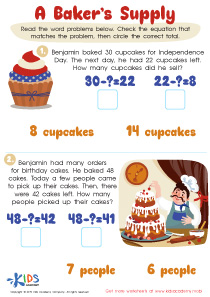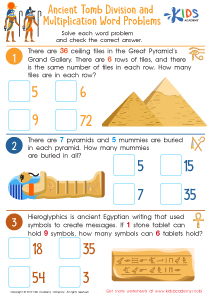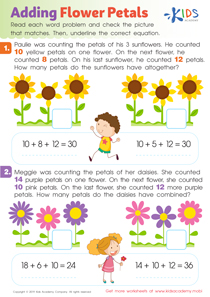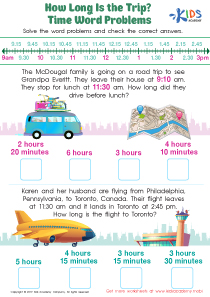Length and Mass Word Problems Worksheets for 6-Year-Olds
2 filtered results
-
From - To
Introducing our specially designed Learning Homework Sheets, featuring Length and Mass Word Problems, perfect for six-year-old students! These worksheets are expertly crafted to engage young minds in understanding and applying concepts of length and mass through fun and interactive problems. Each sheet is tailored to help children develop essential measurement skills, encouraging critical thinking and problem-solving abilities. Ideal for both classroom use and at-home learning, these worksheets are a fantastic resource for reinforcing important mathematical concepts in a playful, yet educational manner. Equip your child with the tools for academic success and make learning an enjoyable journey!
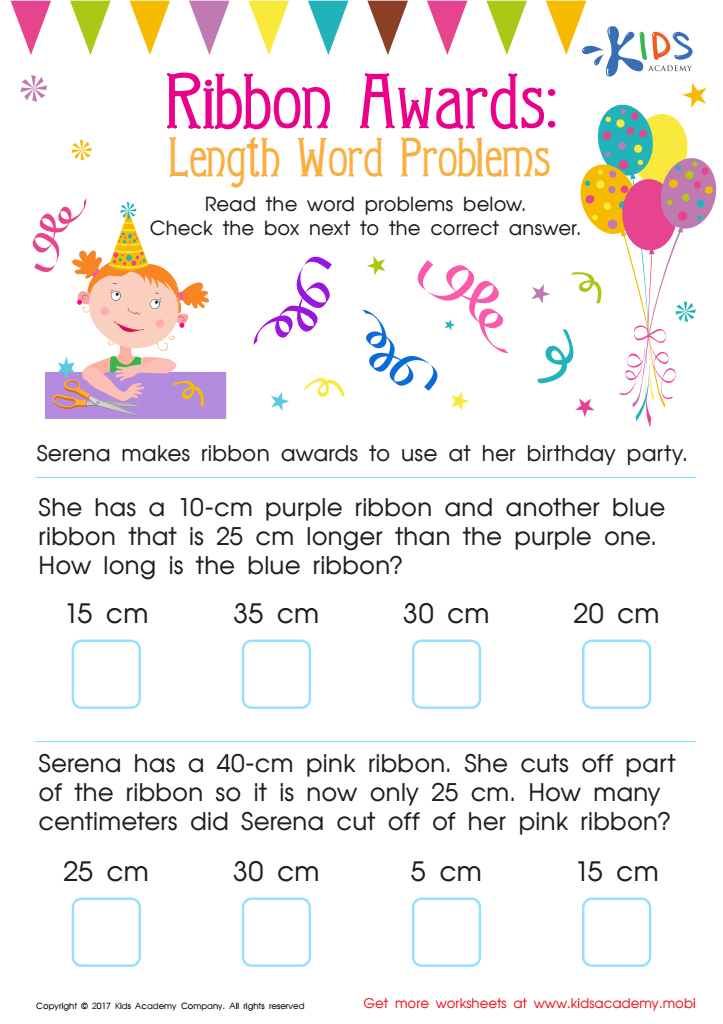

Length Word Problems Worksheet
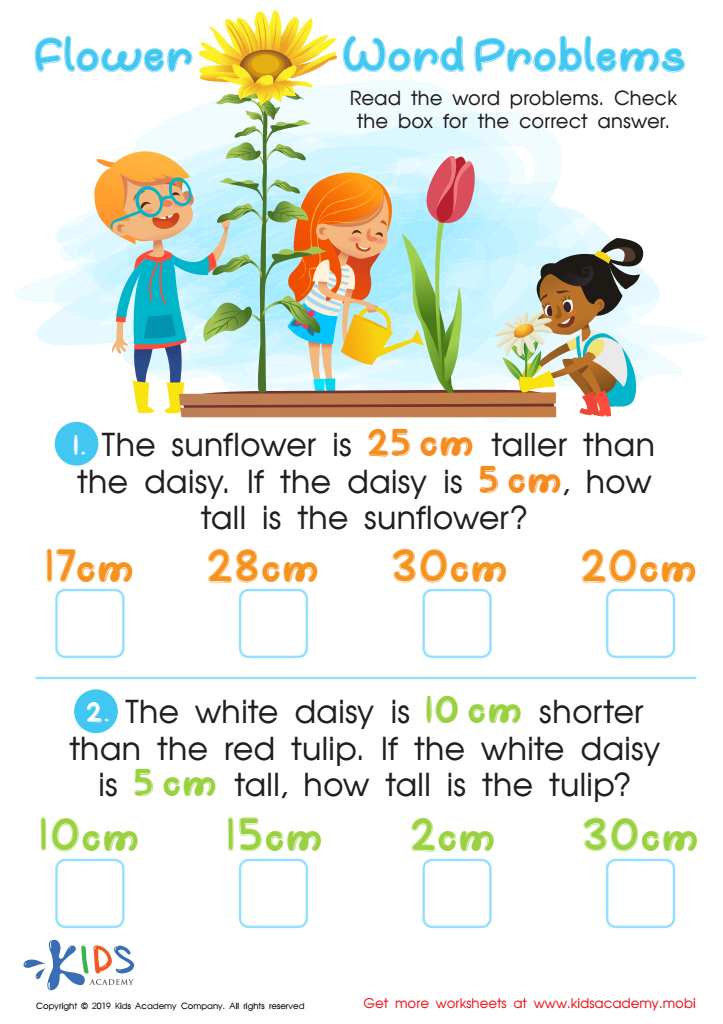

Flower Word Problems Worksheet
Educational Worksheets on Length and Mass Word Problems: A Key Tool for Early Learning
In the foundational stages of a child's education, particularly around the age of six years, the integration of practical and engaging learning resources is crucial. Educational worksheets focused on Length and Mass Word Problems have emerged as an essential tool in this regard, offering young learners a hands-on experience in understanding and applying mathematical concepts in real-world scenarios.
Understanding length and mass at an early age sets the groundwork for all future scientific and mathematical learning. These concepts are not only fundamental in math but also play a vital role in everyday situations. Whether it is measuring ingredients for a recipe, comparing weights of different objects, or estimating the length of a room, these skills are indispensable. Educational worksheets are designed to introduce these concepts in a manner that is both accessible and enjoyable for six-year-olds.
Why Are These Worksheets Useful?
-
Building a Mathematical Foundation: At six years old, children are developing cognitive skills rapidly. Educational worksheets on Length and Mass Word Problems help reinforce basic mathematical concepts like addition, subtraction, comparison, and estimation. These worksheets use simple, relatable problems that align with their everyday experiences, thereby making abstract concepts more concrete.
-
Enhancing Problem-Solving Skills: Length and mass worksheets are not just about finding the right answers. They are about understanding problems, analyzing situations, and coming up with solutions. This stimulates critical thinking and problem-solving skills, which are essential for academic success in all subjects.
-
Engagement and Fun: Children at this age learn best when they are actively engaged. Educational worksheets are designed with vibrant visuals, diverse characters, and interesting scenarios that make the learning process fun. When children enjoy what they are learning, they are more likely to retain that information and stay curious about the subject matter.
-
Practical Learning: By using real-life scenarios, such as comparing the height of different family members or weighing fruits in a basket, these worksheets teach children how to apply math in their daily lives. This practical approach not only makes learning more relatable but also helps children understand the importance and utility of math.
-
Self-paced Learning: One of the great advantages of educational worksheets is that they allow children to learn at their own pace. They can take their time to grasp new concepts without feeling rushed or pressured, which is particularly important for building confidence in young learners.
-
Parent and Teacher Interaction: Worksheets offer a great opportunity for parents and teachers to actively participate in the educational journey of children. They serve as a prompt for discussions around numerical concepts and problem-solving strategies. When a child struggles with a particular problem, it can become a collaborative learning experience, with adults guiding them through the logic and reasoning needed to find a solution.
-
Assessment and Feedback: Educational worksheets provide immediate feedback to both the learner and the educator. Children can quickly identify the problems they have mastered and the areas where they need more practice. Similarly, teachers and parents can assess progress and understand specific learning needs, allowing them to tailor future lessons accordingly.
-
Preparation for Higher Learning: Early exposure to structured problem-solving through worksheets prepares children for more complex mathematical concepts in higher grades. This early preparation can ease the transition into more advanced subjects such as algebra and geometry.
-
Development of Fine Motor Skills: Besides the cognitive benefits, working on worksheets helps in developing fine motor skills. As children write down numbers, draw lines to measure objects, or color coded sections based on mass, they refine their motor control and coordination.
-
Customization and Variety: The variety of worksheets available makes it easy to find ones that cater to the specific interest of the child. Whether a child is more interested in sports, nature, or vehicles, worksheets can be customized to include these elements, thus maintaining a high level of engagement.
In conclusion, educational worksheets focused on Length and Mass Word Problems are more than just paper exercises. They are a dynamic educational tool that fosters mathematical literacy, encourages independent and critical thinking, and develops a myriad of skills essential for young learners. For children aged six, these worksheets serve as a bridge between simple numerical understanding and real-world application, ensuring that learning remains both a fun and impactful part of their early education.
 Assign to the classroom
Assign to the classroom
